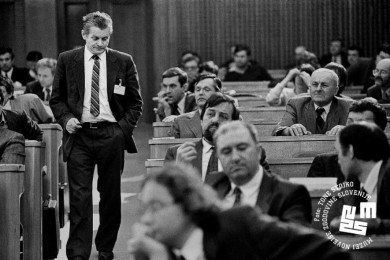13. 1. 1991: The new Slovenian Constitution should renounce the sovereignty of federal bodies in Slovenia’s territory
They also spoke about systemic acts referring to the privatisation, denationalisation and cooperatives. Dr Franc Zagožen, the convener and chair of the meeting in Poljče, confirmed on Sunday that Saturday’s session primarily focused on the issues relating to Slovenia’s independence and questions about the drafting of the new Slovenian Constitution.
At the end of the session on Sunday, a press conference was convened at which the conclusions adopted at the two-day meeting were presented. It was decided to support the government proposal to amend the Slovenian Constitution, which deleted all articles relating to the federation and its powers. It was also proposed that the star be removed from the Slovenian flag and the coat-of-arms. Furthermore, the DEMOS deputies proposed that 23 December be declared a national holiday in the Republic of Slovenia. The government security policy and defence strategy were also endorsed in Poljče, and the attendees agreed that new rules of procedure should be adopted as soon as possible to enable more efficient work of the Assembly and reduce the number of the Assembly’s working bodies by merging powers.
The Slovenian Government at the Sunday extraordinary session: The attack on Lithuania cannot contribute to positive processes of European security and cooperation
On the night of Saturday, 12 January, to Sunday, 13 January 1991, Soviet military units seized radio and television broadcast facilities in the capital of Lithuania. During the storming by the Soviet tanks, 14 protesters died and some 600 were injured on the Bloody Sunday in Vilnius. The Executive Council of the Assembly of the Republic of Slovenia responded to the tragic events in Vilnius. An extraordinary session was convened on Sunday at which the Soviet military intervention was condemned, and full solidarity was expressed with the democratically elected Lithuanian Government and the Lithuanian people. The press release further stated that the military assault on Lithuania undermined hope for a democratic transformation of the Soviet Union and could not contribute to positive processes of European security and cooperation.
The DEMOS deputy group also responded to the events in Lithuania. Their statement read, "We categorically denounce the use of force against the self-determination of the Lithuanian citizens and particularly against the democratically elected bodies of the Republic of Lithuania. The use of the Soviet Armed Forces in the territory of the Republic of Lithuania is inadmissible and a brutal interruption of a democratic process in this country."
On the occasion of the second anniversary of the establishment of the Slovenian Democratic Union
Following the two-day session of the DEMOS deputy group, a press conference was convened on the occasion of the second anniversary of the establishment of the Slovenian Democratic Union. "This was the first political opposition party in Slovenia to encourage the development of a number of other parties in Slovenia and even in Croatia," stated Dr Dimitrij Rupel at the press conference. The then Minister of Foreign Affairs also said that the party strove for political pluralism and had a clear political profile. Rupel added that the Slovenian Democratic Union was a guarantee that authoritarian communism of the Bolshevik type or a state constitution that would denote a return to a pre-war clericalism would not occur in Slovenia.
Author: Andraž Koželnik
Similar articles
-
Triumphant Year of 1991
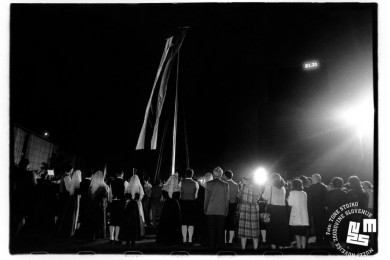
-
9. 5. 1991: Facilitated processing of independence laws
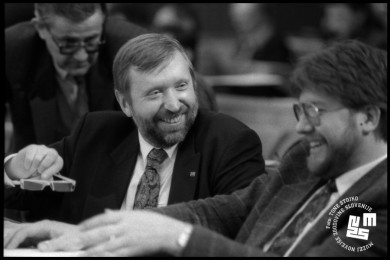
-
2. 3. 1991: Slovenians abroad and around the world in concern for Slovenia
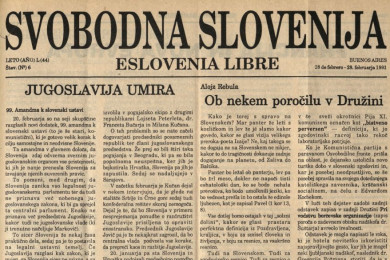
-
1. 3. 1991: Franco Juri against the transfer of conscripts to the Slovenian Territorial Defence
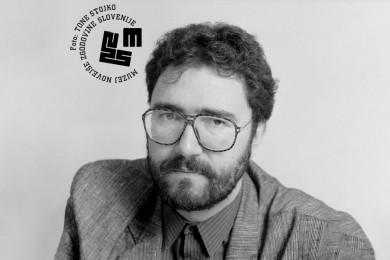
-
28. 2. 1991: Prepared defence and protection act proposal to ensure a plebiscite decision
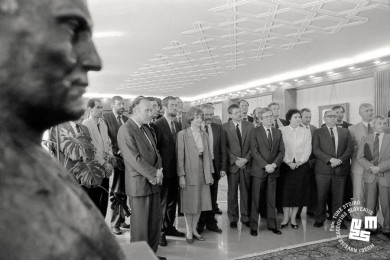
-
27. 2. 1991: The persistently looming red star
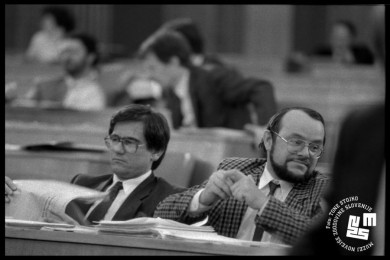
-
26. 2. 1991: A hopeless search for the Yugoslav modus vivendi
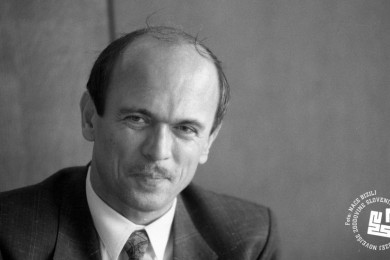
-
16. 2. 1991: Ciril Ribičič on the red star and reservations about the dissolution of Yugoslavia
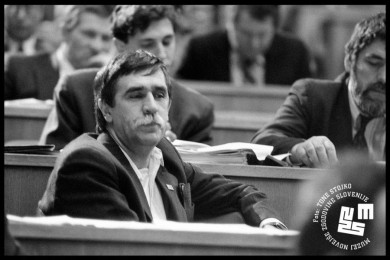
-
15. 2. 1991: Two thirds of respondents have faith in an independent Slovenia
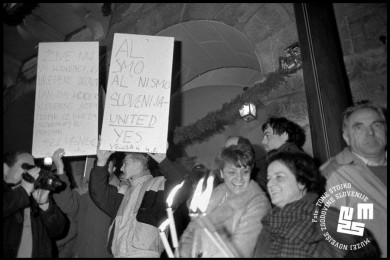
-
27. 1. 1991: Between a relaxation of tensions at home and a deteriorating situation in the Middle East
